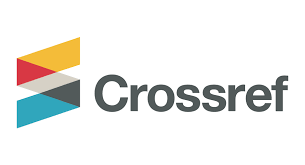Studi Kasus Tentang Putusan Mahkamah Konstitusi tentang Perselisihan Hasil Pemilu yang Mempengaruhi Prinsip-Prinsip Hukum Pemilu
 Abstrak views: 233
,
Abstrak views: 233
,
 PDF (English) downloads: 269
PDF (English) downloads: 269
Abstrak
Tatkala Pemilukada dinyatakan menjadi bagian dari rezim hukum pemilu sesuai Pasal 236C UU No.12 tahun 2008 tentang Pemerintahan Daerah, maka kemenangan untuk mengadili masalah pemilukada dialihkan menjadi domain Mahkamah Konstitusi yang ditangani sebelumnya oleh Mahkamah Agung. Dalam perkembangannya, kewenangan Mahkamah Konstitusi dalam masalah pemilukada tidak hanya dimaknakan secara tekstual yaitu sekedar mengakhiri percakapan yang akan terja diperhitungan suara Pemilukada, namun pula mempertimbangkan pelanggaran-pelanggaran yang terjadi. Inilah kewajiban konstitusional Mahkamah Konstitusi yang pada dasarnya bertujuan agar pemilukada berlangsung amanah dan adil. Dalam praktek, relatif banyak masalah yang muncul pada pelaksanaan pemilukada baik dari sisi regulasi, penyelenggaran, dan penguatan hukumnya. Selain itu dari sisi Mahkamah Konstitusi, banyak tantangan dan kendala yang dihadapi dalam penanganan masalah pemilukada. Namun demikian, syarat tersebut tak mengoyahkan Mahkamah Konstitusi untuk melakukan variasi hukum pada rangka membenahi serta memperbaiki sistem pemilukada. Langkah Mahkamah Konstitusi justru sebagai suatu keniscayaan dan semakin mengungkapkan karakternya undang-undang konstitusi untuk menegakan hukum serta keadilan sebagaimana diamanatkan oleh UUD1945.
##plugins.generic.usageStats.downloads##
Referensi
Aurel Croisant, et.al. Politik Pemilu di Asia Tenggara dan Asia Tenggara, Pensil 324 dan FES, Jakarta, 2003
Joko Prihatmoko, Pemilihan Kepala Daerah Langsung, Pustaka Pelajar, Yogyakarta, 2005.
Panduan Teknis Beracara Dalam Perkara Perselisihan Hasil Pemilihan Umum Kepala Daerah dan Wakil Kepala Daerah, Sekretariat Jendral dan Kepaniteraan Mahkamah Konstitusi, Jakarta, 2011.
Topo Santoso dkk, Penegakan Hukum Pemilu: Praktik Pemilu 2004, Kajian Pemilu 2009-2014, Perludem, Jakarta, 2006.
Publishing your paper with As-Shahifah : Journal of Constitutional Law and Governance means that the author or authors retain the copyright in the paper. As-Shahifah granted an exclusive non commercial reuse license by the author(s), but the author(s) are able to put the paper onto a website, distribute it to colleagues, give it to students, use it in your thesis etc, so long as the use is not directed at commercial advantage or toward private monetary gain. The author(s) can reuse the figures and tables and other information contained in their paper published by As-Shahifah in future papers or work without having to ask anyone for permission, provided that the figures, tables or other information that is included in the new paper or work properly references the published paper as the source of the figures, tables or other information, and the new paper or work is not direct at private monetary gain or commercial advantage.
As-Shahifah journal provides immediate open access to its content on the principle that making research freely available to the public supports a greater global exchange of knowledge. This journal is licensed under a Creative Commons Attribution-ShareAlike 4.0.This license lets others remix, tweak, and build upon your work non-commercially, and although their new works must also acknowledge & be non-commercial, they don’t have to license their derivative works on the same terms.
As-Shahifah journal Open Access articles are distributed under this Creative Commons Attribution-ShareAlike 4.0 International License (CC BY-SA). Articles can be read and shared for noncommercial purposes under the following conditions:
- BY: Attribution must be given to the original source (Attribution)
- SA: If you remix, transform, or build upon the material, you must distribute your contributions under the same license as the original.









